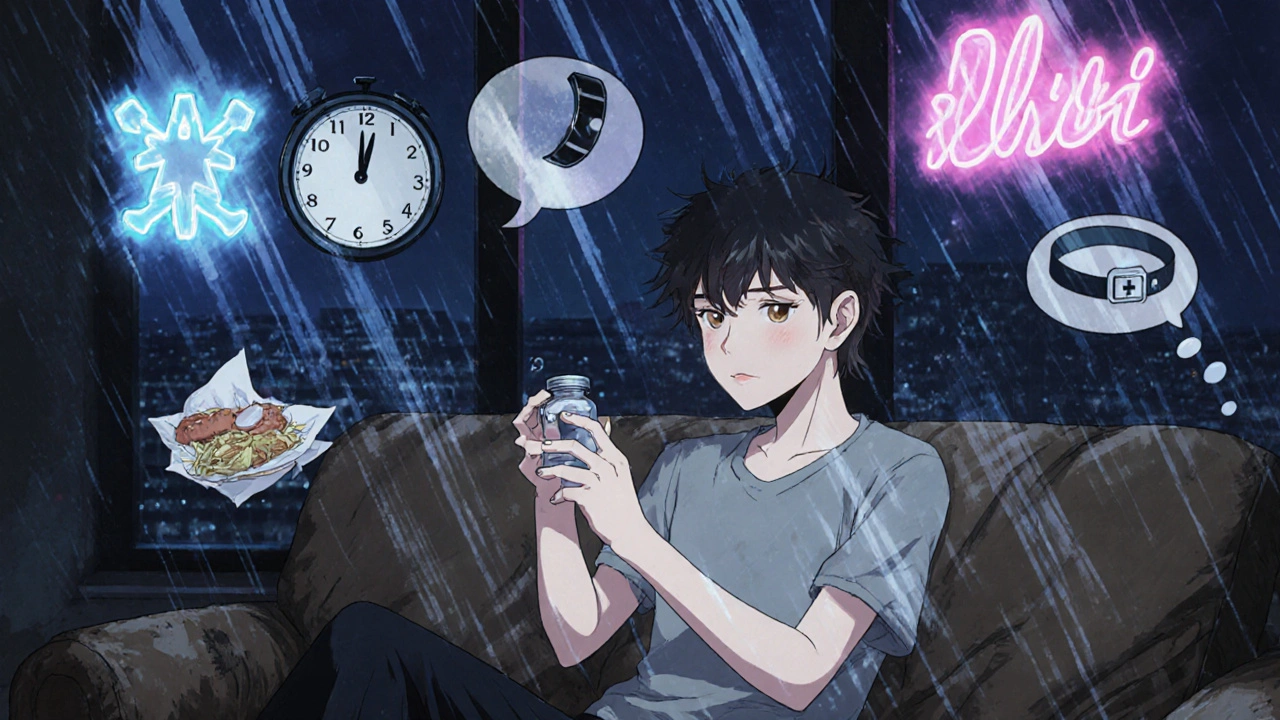Mental Health: Spot Signs and Get Help
Feeling down for a few days is normal. But how do you know when it’s more than that? Watch for changes that stick around: low mood most of the day, loss of interest in things you used to enjoy, big shifts in sleep or appetite, constant fatigue, trouble concentrating, and feelings of worthlessness. If these last more than two weeks and affect work or relationships, seek help.
Write down what you feel each day. A simple list helps you see patterns and gives concrete examples to share with a doctor. Note when symptoms started, what makes them better or worse, and any medicines or life changes that might matter.
Talk to someone you trust. Opening up to a friend or family member often leads to practical support. If that feels hard, call a local helpline or use online chat services. If you ever have thoughts of harming yourself, get emergency help immediately.
On the treatment side, talk therapy and medications are common. Cognitive behavioral therapy (CBT) helps change negative thoughts and routines. Antidepressants can stabilize mood, but they work differently for each person. Keep appointments and give a treatment plan at least a few weeks to take effect. Tell your provider if side effects are bad.
Caregivers and people over 60: pay attention to overlapping issues. Older adults might show depression as memory problems or slower thinking, not just sadness. Medical conditions and multiple prescriptions raise the chance of side effects and drug interactions.
About atomoxetine: it's a norepinephrine reuptake blocker used for ADHD, and some older adults take it. For elderly patients, start low and go slow. Check blood pressure and heart rate before starting and during treatment. Watch for reduced appetite, dry mouth, dizziness, or trouble urinating. Because older people often take several drugs, ask a pharmacist to review possible interactions.
Practical steps if you or someone older is on atomoxetine: list every medicine and supplement, check for heart or blood pressure issues, schedule regular follow ups, and report any new or worse symptoms right away. If sleep or balance changes, stop driving until you know how the drug affects you.
If you need help finding care, ask your primary doctor for a mental health referral, call local clinics, or search community health centers. Some services offer sliding-scale fees or telehealth options.
You don't have to handle mental health alone. Small, clear steps—tracking symptoms, talking openly, checking medicines—can make a big difference fast.
Small daily habits help: aim for 20–30 minutes of movement most days, keep a regular sleep schedule, limit alcohol and late caffeine, and eat regular meals. Even short walks and brief social check-ins lower stress and make treatments work better.
Before any visit, prepare a short list: symptoms with dates, current medicines and doses, past mental health history, sleep patterns, and who supports you. Asking for written plans and follow-up appointments helps keep care on track.
You deserve practical care—ask questions until answers are clear. Every step matters.
Panic Disorder: Understanding Panic Attacks, Agoraphobia, and Effective Treatments
Panic disorder causes sudden, intense panic attacks that can lead to agoraphobia and severe life disruption. Effective treatments like CBT and SSRIs can help you regain control, reduce fear, and return to daily life.
Mental Health and Medication Non-Adherence: What Actually Works
Mental health medication non-adherence is a silent crisis affecting millions. Learn what actually works to improve adherence - from pharmacist-led care to simpler dosing - and why most advice fails.
How Infertility Reshapes Personal Identity and Life Goals
Explore how infertility reshapes personal identity, affects relationships, career plans, and life goals, and discover practical coping strategies to rebuild a sense of self.
Symptoms of Depression: How to Tell if It’s More Than Just Sadness
A lot of people mix up normal sadness with depression, but knowing the difference really matters. This article breaks down the signs that set depression apart from everyday sadness and gives you practical ways to notice what’s going on. You’ll get simple tips and relatable examples, so you can decide if you or someone you care about might need extra support. Instead of vague advice, you’ll find solid, easy-to-understand info here. Recognizing real symptoms early on could make all the difference.
Atomoxetine and Elderly Patients: A Special Consideration
In my recent research on Atomoxetine, I found that it is important to consider its effects on elderly patients specifically. As a selective norepinephrine reuptake inhibitor, it is a popular treatment for attention deficit hyperactivity disorder (ADHD), but its impact on the aging population requires special attention. Studies show that while Atomoxetine can be beneficial for older adults, it may also exhibit certain side effects. Moreover, it is crucial to pay attention to potential drug interactions, as elderly patients are often prescribed multiple medications. Overall, the use of Atomoxetine in elderly patients must be closely monitored and adjusted to ensure the best possible outcome.










